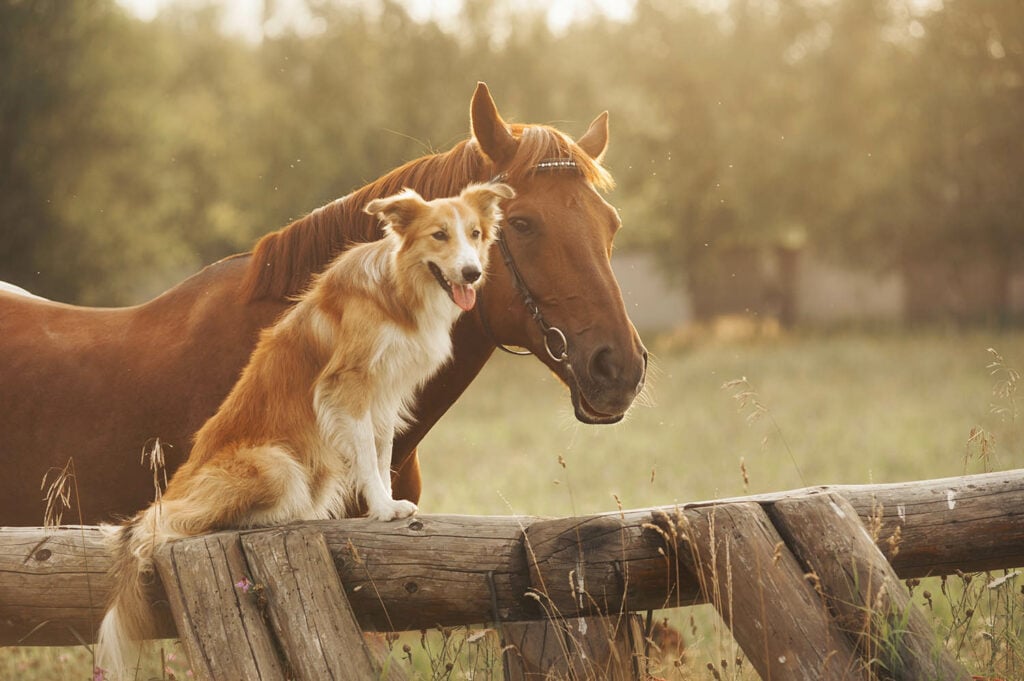Horses are known for their beauty, strength, and agility. But how smart are they? This question has been the subject of much debate among animal behaviorists and horse lovers alike. While some people believe that horses are highly intelligent creatures capable of complex problem-solving and emotional understanding, others argue that they are simply instinctual animals with limited cognitive abilities.
Recent research has shed some light on the topic, suggesting that horses may be more intelligent than previously thought. Studies have shown that horses are capable of learning and remembering a wide range of tasks, from simple tricks to complex maneuvers. They are also able to recognize and respond to human emotions, indicating a level of emotional intelligence that was once thought to be unique to humans and other primates.
Despite these findings, there is still much we do not know about horse intelligence. Further research is needed to fully understand the cognitive abilities of these magnificent animals and how they compare to other species. However, one thing is clear – horses are more than just beautiful creatures to be admired from afar. They are intelligent, social beings who deserve our respect and admiration.
Understanding Horse Intelligence
Horses are intelligent animals that possess a range of cognitive abilities that allow them to navigate their environment, learn new tasks, and communicate with other horses and humans. While horses may not have the same cognitive abilities as humans, they are still capable of complex problem-solving and social interactions.
Problem-Solving Abilities
Horses are capable of solving a wide range of problems, from navigating complex mazes to figuring out how to open gates and doors. They are also able to remember solutions to problems that they have encountered in the past, which allows them to solve similar problems more quickly in the future.
Social Intelligence
Horses are social animals that rely on complex social interactions to survive in the wild. They are able to recognize individual horses and form close bonds with them, and they are also able to read and respond to the body language of other horses.
Learning and Memory
Horses have excellent memories and are able to learn new tasks quickly. They are also able to remember past experiences and use that knowledge to inform their behavior in the future.
Communication
Horses communicate with each other using a range of vocalizations, body language, and facial expressions. They are also able to communicate with humans through training and conditioning.
Overall, horses are intelligent animals that possess a range of cognitive abilities that allow them to navigate their environment, learn new tasks, and communicate with other horses and humans.
Comparative Intelligence: Horses Vs Dogs

When it comes to intelligence, horses and dogs are both considered to be highly intelligent animals. However, their intelligence is different in various ways.
Cognitive Abilities
Horses have excellent memory and can remember people and places for years. They can also recognize their owners’ voices and distinguish between different sounds. Dogs, on the other hand, have an exceptional sense of smell and can detect various scents.
Social Intelligence
Both horses and dogs are social animals and can form strong bonds with humans and other animals. Horses are highly sensitive to their surroundings and can understand human emotions. Dogs, on the other hand, are known for their loyalty and ability to read human body language.
Problem Solving
Horses are good at solving problems and can learn new tasks quickly. They can also adapt to new situations and environments. Dogs, on the other hand, are known for their problem-solving skills and can be trained to perform complex tasks.
Communication
Horses use body language to communicate with each other and with humans. They can also produce various vocalizations. Dogs, on the other hand, use body language, vocalizations, and scent to communicate.
Overall, horses and dogs are both highly intelligent animals, but their intelligence is different in various ways. It’s difficult to say which one is smarter as they excel in different areas.

Cognitive Abilities of Horses
Problem Solving Skills
Horses are known for their problem-solving abilities, which are an important aspect of their intelligence. They are capable of using their cognitive skills to solve a variety of problems, such as opening gates, finding food, and escaping from dangerous situations.
One study found that horses are able to use their problem-solving skills to navigate through a maze and find the fastest route to a reward. They were able to remember the correct path and avoid dead-ends, showing impressive spatial awareness.
Memory
Horses have a good memory and are able to remember people, places, and things they have learned in the past. They can remember a route they have taken before and can recognize familiar people and other horses.
In one study, horses were able to remember the location of hidden food after a delay of up to two weeks. They were also able to learn to associate specific cues with rewards, demonstrating their ability to learn and remember.
Learning
Horses are capable of learning a wide range of tasks and behaviors through conditioning and reinforcement. They can learn to respond to verbal and physical cues, and can be trained to perform a variety of tasks, such as jumping, dressage, and racing.
One study found that horses can learn to associate different sounds with different types of food, and can use this knowledge to choose the food they prefer. They are also able to learn from each other, and can pick up new behaviors by watching other horses.
Overall, horses have demonstrated impressive cognitive abilities and are capable of learning, problem-solving, and remembering. While they may not have the same level of intelligence as some other animals, they are certainly smart and adaptable creatures.
Social Intelligence in Horses
Horses are social animals that live in herds in the wild. As a result, they have developed a high level of social intelligence to communicate and interact with other horses effectively. Here are some ways in which horses demonstrate their social intelligence:
- Body Language: Horses communicate through body language, and they are skilled at interpreting the body language of other horses. They can convey a range of emotions, including fear, aggression, and contentment, through their posture, facial expressions, and movements.
- Leadership: Horses have a hierarchical social structure, with a dominant horse leading the herd. They use a variety of cues, including vocalizations, body language, and physical contact, to establish and maintain their position in the hierarchy.
- Empathy: Horses are empathetic animals that can sense the emotions of other horses and respond appropriately. They can also sense the emotions of humans and respond to them, making them popular therapy animals.
- Cooperation: Horses are capable of cooperating with each other to achieve a common goal. For example, they may work together to defend against a predator or to find food and water in a new location.
Overall, horses are intelligent animals that have developed a range of social skills to survive and thrive in their natural environment. Their social intelligence is an essential part of their behavior and makes them fascinating animals to study and interact with.

Emotional Intelligence in Horses
Horses are known for their ability to sense and respond to human emotions. But they are not just attuned to human emotions, they also have their own emotional intelligence. Emotional intelligence in horses refers to their ability to recognize, understand, and regulate their own emotions as well as the emotions of other horses.
Horses are social animals and live in herds, which means they rely on social cues and communication to interact with each other. They use body language, vocalizations, and facial expressions to convey their emotions and intentions. Research has shown that horses are capable of recognizing and responding to a wide range of emotions, including fear, anger, happiness, and sadness.
Horses also have the ability to regulate their own emotions. They can learn to control their fear and anxiety in stressful situations and remain calm and focused. This is an important trait for horses that are used in competitive sports, such as horse racing and show jumping.
In addition to regulating their own emotions, horses are also able to sense and respond to the emotions of other horses. They can pick up on subtle changes in body language and vocalizations to determine the emotional state of their herd mates. This allows them to respond appropriately and maintain social harmony within the herd.
Overall, emotional intelligence is an important aspect of horse behavior and is essential for their survival in the wild as well as their success in human care. By understanding and respecting their emotional needs, we can build strong, trusting relationships with these magnificent animals.
Conclusion
In conclusion, the intelligence of horses is a fascinating topic that has been studied for many years. While horses may not possess the same level of intelligence as humans or primates, they are still highly intelligent animals that are capable of learning and problem-solving.
Studies have shown that horses have excellent memory and are capable of recognizing individual people and other horses. They are also able to learn and remember complex tasks, such as navigating obstacle courses or performing intricate dressage movements.
However, it is important to note that intelligence is a complex trait that cannot be accurately measured by a single test or metric. Different horses may excel in different areas, and their intelligence may be influenced by a variety of factors such as breed, training, and environment.
In summary, while horses may not be as intelligent as some other animals, they are still highly intelligent creatures that deserve our respect and admiration. As we continue to learn more about their cognitive abilities, we can develop better training and care practices that will help these magnificent animals thrive.

